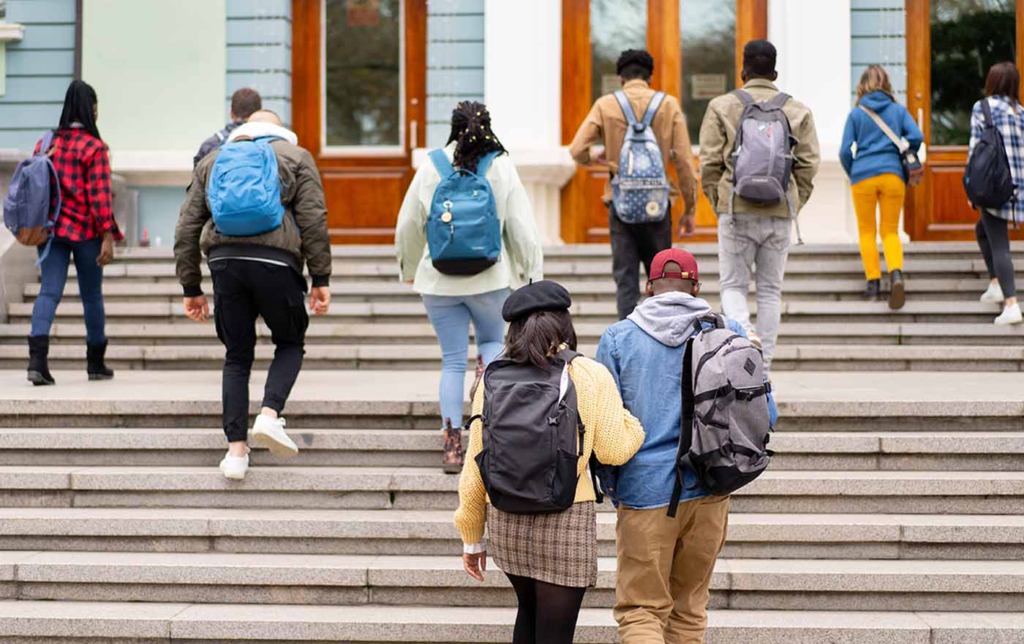Colleges across the United States are raising concerns over what they describe as a new and aggressive approach by the Trump administration to revoke international students’ visas without warning or clear justification. Officials say these sudden removals risk deterring global talent from choosing American universities.
International students who previously would have been allowed to remain in the country even after visa revocation are now being ordered to leave immediately. In some cases, students have been detained or deported without their universities receiving prior notice — a sharp departure from past practices.
Alarming New Tactics
“None of this is regular practice,” said Miriam Feldblum, CEO of the Presidents’ Alliance on Higher Education and Immigration. She explained that authorities are bypassing colleges entirely, deleting students’ legal records from federal databases without informing institutions — or the students themselves — in advance.
Minnesota State University President Edward Inch revealed that five international students had their visas revoked for unclear reasons. The issue came to light only after the arrest of a Turkish student at the University of Minnesota, which led school officials to run checks in a federal immigration database.
“These are troubling times, and this situation is unlike any we have navigated before,” Inch wrote to the campus community.
Politically Motivated?
The crackdown appears to align with political rhetoric from former President Donald Trump, who previously pledged to deport foreign students involved in pro-Palestinian protests. Recently, graduate student and Palestinian activist Mahmoud Khalil was detained by federal agents despite holding a green card. Secretary of State Marco Rubio later said students are being targeted for their protest involvement or for “potential criminal activity.”
Yet, many students caught in the sweep have no known links to activism. Feldblum said some have been removed over traffic violations or minor infractions that would not typically justify visa termination.
Michelle Mittelstadt of the Migration Policy Institute warned that some of the government’s actions may soon face legal scrutiny: “In some ways, what the administration is doing is really retroactive… they’re going back and vetting students based on past expressions or past behaviour.”
Students in Limbo, Universities in the Dark
At North Carolina State University, two Saudi students left the country after discovering their legal status had been revoked. One of them, a graduate student in engineering management, was reportedly apolitical. “He doesn’t want to allow it to steal his peace any further,” said Philip Vasto, who lived with the student.
Similar cases have been reported at Arizona State, Cornell, the University of Texas, the University of Oregon, and others. At Tufts and the University of Alabama, students were detained before their universities were even made aware of the status changes.

At the University of Texas at Austin, staff found two international students had their student status revoked — one from India and another from Lebanon. Both were working full-time under post-study work provisions and had no apparent violations of their student visa terms.
Federal records cited criminal background checks or unspecified visa issues. One justification used was a rarely applied law permitting the revocation of visas if a noncitizen’s presence could cause “serious adverse foreign policy consequences.” Trump had invoked this clause in January while ordering action against antisemitism on campuses.
No Clear Pattern
Despite suspicions of political motives, universities are struggling to find consistent reasons for the cancellations. Bernie Burrola of the Association of Public and Land-grant Universities said: “The universities can’t seem to find anything that seems to be related to Gaza or social media posts or protests.”
Even students sponsored by foreign governments — who are typically cautious about activism — have been affected, he said.
The Association is now seeking a meeting with the State Department to discuss the growing number of visa revocations. While it remains unclear whether the number of cancellations has increased dramatically, the opacity of the process and lack of due process has sent shockwaves through the academic world.
International Reputation at Risk
Fanta Aw, CEO of NAFSA: Association of International Educators, warned of a broader fallout: “We should not take for granted that that’s just the way things are and will always be.” She noted that other countries offer international students viable alternatives to U.S. universities.
The United States has long been a magnet for top global talent, offering unmatched research opportunities and innovation hubs. But as universities now scramble to assist displaced students remotely, the future of American higher education’s global standing may depend on how long — and how far — this crackdown continues.
